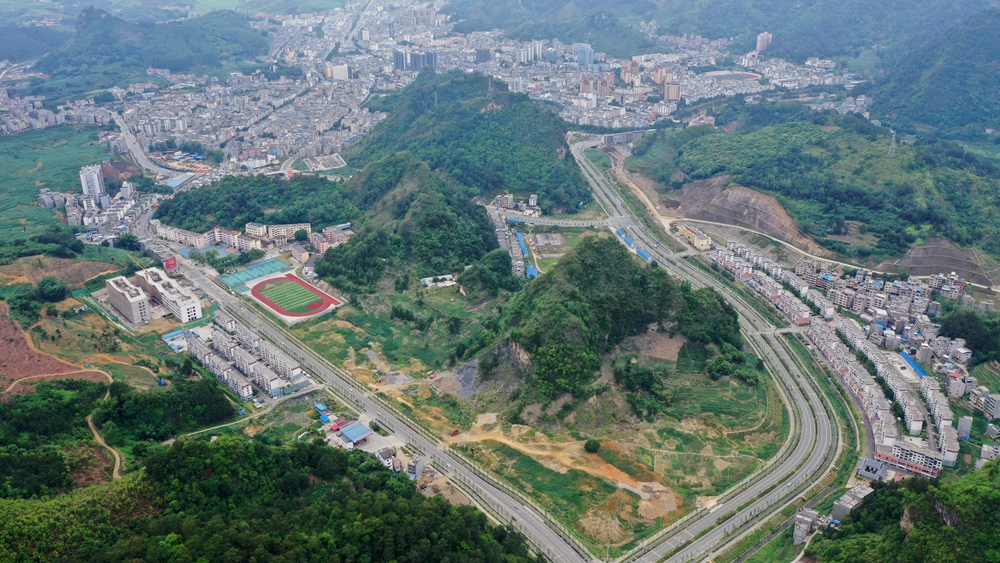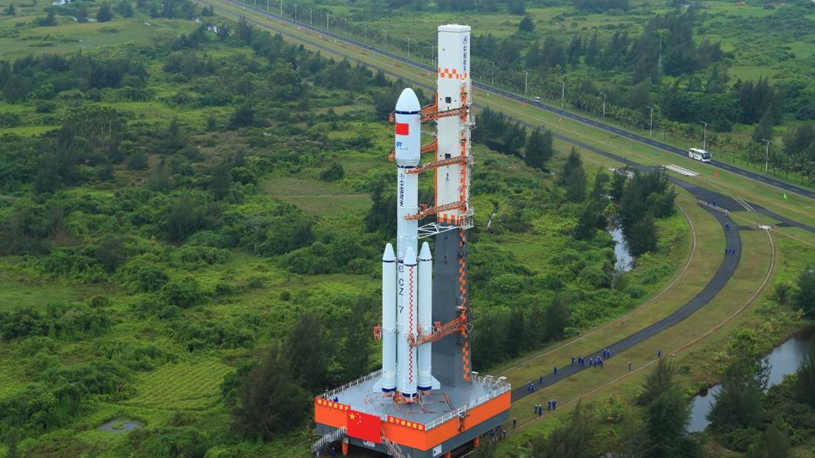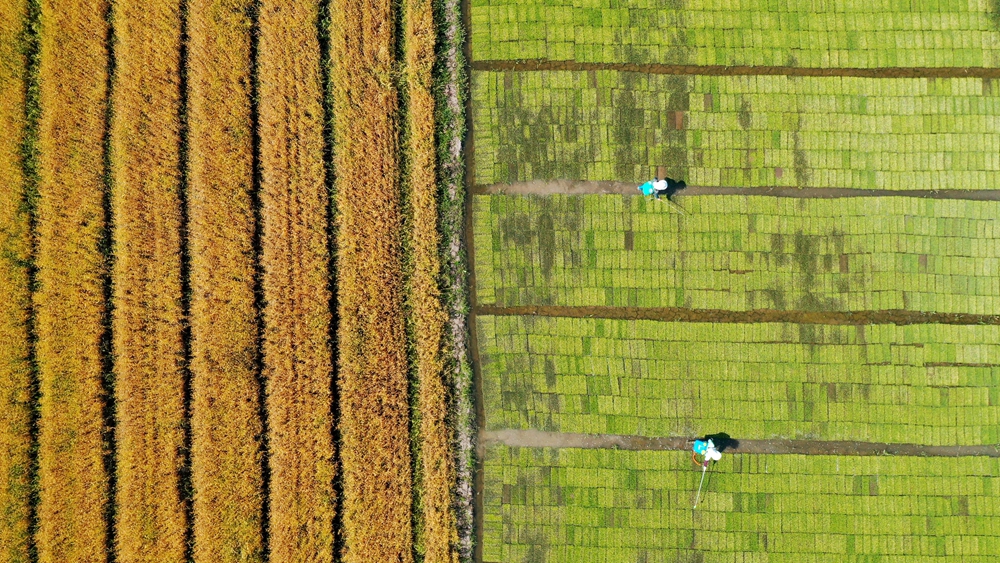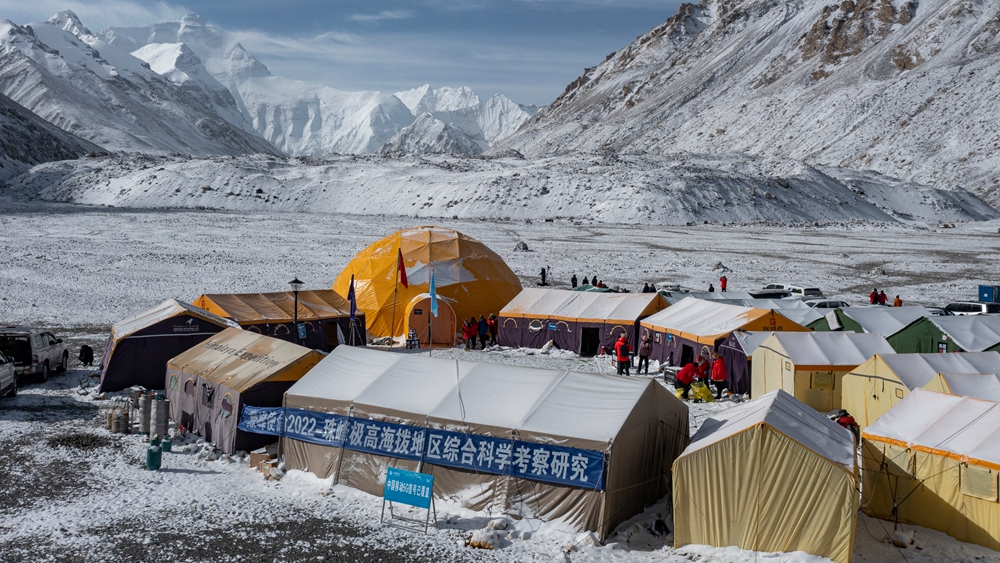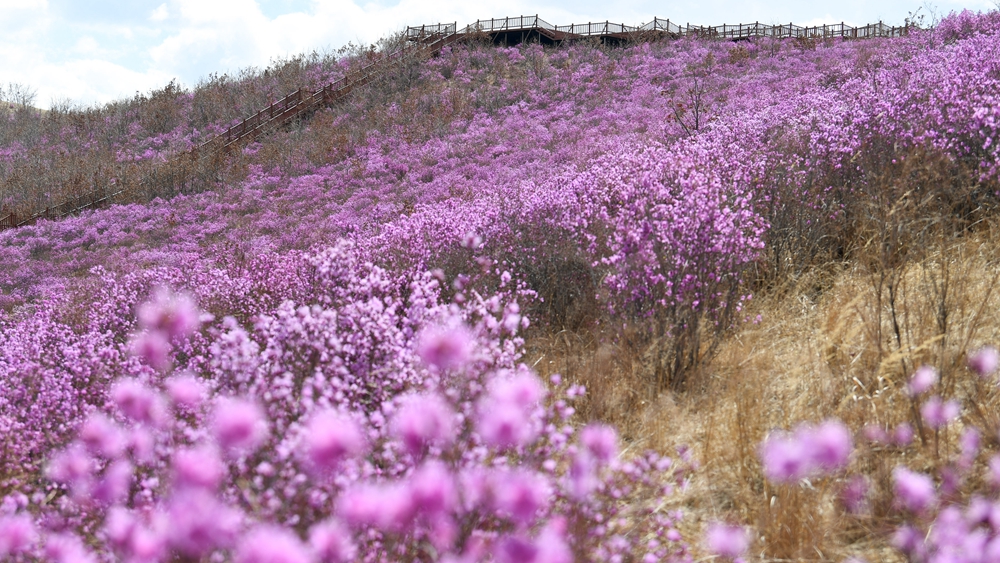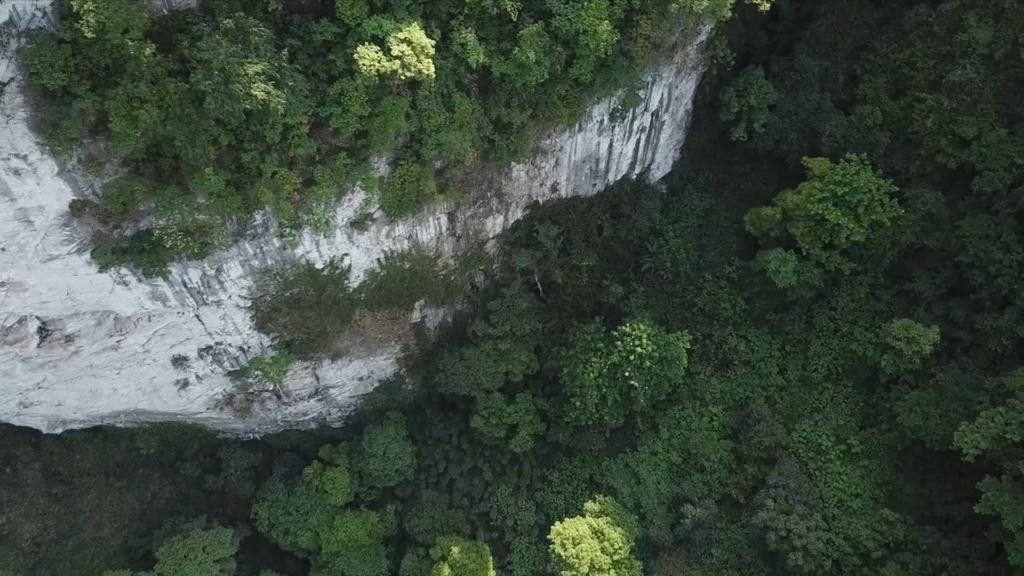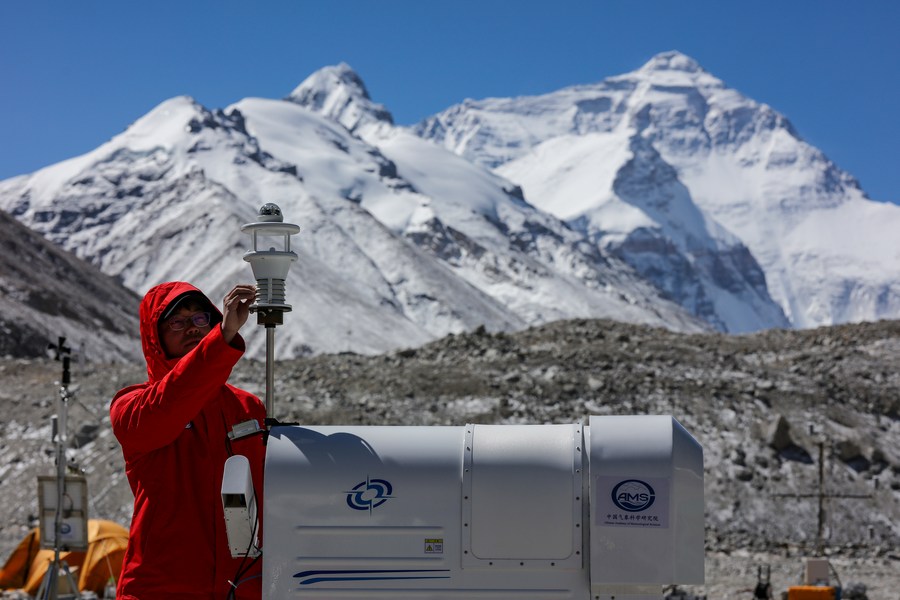
A scientific research member checks a microwave radiometer at the Mount Qomolangma base camp on May 3, 2022. (Xinhua/Jiang Fan)
LHASA, May 9 (Xinhua) -- While mountaineers climbing to the summit of snow-capped Mount Qomolangma must battle the biting cold and thin air, this epic journey is even harder for scientific researchers as they must carry heavy loads and complete their investigations.
On Wednesday, 13 members of a Chinese expedition team reached the summit of the world's highest peak at a height of 8,848.86 meters. The squad established an automatic meteorological monitoring station at an altitude of 8,830 meters, the world's highest of its kind. They also measured the thickness of ice and snow using high-accuracy radar and collected samples for further research at the summit.
During the trip, each of the members had to lug 15 kg of equipment and supplies on their backs, twice the weight carried by ordinary mountaineering.
Dechen Ngodrup, head of the squad who had reached the summit of Mount Qomolangma four times, described the difficulty of the summiting mission this time as "beyond imagination."
According to him, everything went smoothly until they left the final camp at an altitude of 8,300 meters for the summit at 3 a.m. Wednesday, when they had to walk through snow that reached their knees.
"The safety ropes along the route were all buried by snow. Without the ropes for protection, we could fall at any minute," he said.
While trekking in snow, they had to pull the freezing ropes out of the snow and shook off the ice on the surface. "We spent some eight hours climbing the 500-meter distance," Dechen Ngodrup recalled.
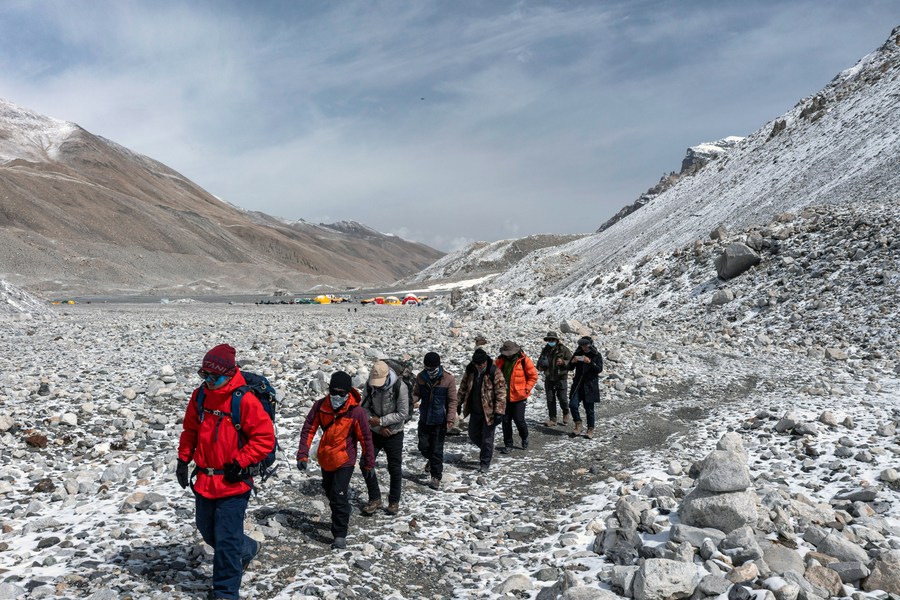
Aerial photo taken on May 1, 2022 shows members of a scientific research team marching towards East Rongbuk glacier on Mount Qomolangma. (Xinhua/Sun Fei)
Due to the ultra-high altitude environment, one of the team members started trembling and his hands were too numb to grasp the ropes.
Tashi Phuntsog, deputy head of the squad, who was climbing Mount Qomolangma for the 16th time, took his freezing teammate's hands into his armpits to warm them up.
"Frostbite is the most common injury for mountaineers," said Tashi Phuntsog, 39, the oldest of the squad. He said he lost a big toe on his right foot and the middle toe on the left due to frostbite several years ago.
Tashi Phuntsog's timely treatment worked. The teammate regained sensation in his hands and the two soon caught up with the others.
At 11 a.m., three hours later than scheduled, the squad arrived at the designated place at an altitude of 8,800 meters, only to find the snow was too deep for them to set up the weather station.
"We dug the snow by over a meter, without finding any rocks to support the equipment," Tashi Phuntsog recalled.
After reporting to the headquarters, the squad climbed for another half an hour and finally found ideal rocks at an altitude of 8,830 meters, where they spent more than an hour setting up the weather station.
By 1:30 p.m. Wednesday, all 13 members had reached the summit, and the team completed their research tasks.
The squad is part of a larger scientific research team of more than 270 members carrying out a comprehensive scientific expedition on Mount Qomolangma, which falls within China's second scientific research survey on the Qinghai-Tibet Plateau.
With the most disciplines covered, the most scientific research participants, and the most advanced equipment utilized, the expedition is the largest since the survey on the Qinghai-Tibet Plateau started in 2017.
An Baosheng, deputy head of the Institute of Tibetan Plateau Research under the Chinese Academy of Sciences and the chief commander of the Mount Qomolangma expedition, said the deep integration of ultra-high altitude scientific research and mountaineering opens a new chapter for the scientific research on the world's highest peak.
"The summiting of the 13-member scientific research team is of epoch-making significance in the history of scientific research on the Qinghai-Tibet Plateau," said An. ■

